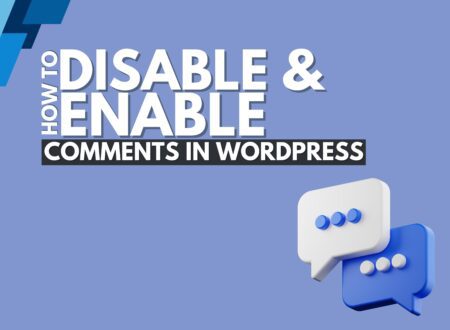In the digital age, websites have become our go-to sources of information, making PDF annotation tools essential. But have you ever wished you could jot down notes, highlight key passages, or leave comments directly on the pages you’re reading in Google Chrome? That’s where concept of annotate a website to the rescue.
It allows you to bookmark and comment effectively on live websites, enhancing your overall web development process. Adding your personal touch to web content can improve your understanding, engagement, and productivity, especially when you start annotating effectively.
What is Concept of Annotate a Website?
Website annotation tools allow for the practice of adding notes, highlights, or other markings to web pages. It’s like taking a digital highlighter and pen to your favourite articles, research papers, or online textbooks, creating a clear visual of your insights. By leaving your mark on the content, you can also annotate your insights and enhance the discussion with public annotations.
- Personalize your reading experience: Tailor the content to your specific needs and interests by using sticky notes to leave notes on important sections.
- Enhance understanding: Highlight key points, add notes, and draw connections between different pieces of information.
- Improve memory through public annotations: Actively engaging with the content through annotations, such as sticky notes, can help you remember it better and loom over key concepts.
- Collaborate with others by using automation features in your annotation tools to streamline the process. Share your annotations with colleagues, classmates, or friends to discuss and learn together; it’s perfect for collaborative learning through public and private annotations.
- Organize your thoughts using a bookmark manager: Use annotations to organize your thoughts and ideas, making it easier to reference and recall information later, especially when you use an annotation tool.
In essence, website annotation empowers you to transform passive reading into an active and interactive experience, making the most of the digital content you consume.
Why Annotate web pages?
It allows you to enhance your understanding and interaction with live websites.
- Personalization through PDF annotation tools can significantly enhance your reading experience by allowing you to highlight important sections and get your point across effectively. Annotating websites allows you to customize your online reading experience, tailoring it to your specific needs and interests with the help of the best website annotation tools, ensuring you’re ready for any use case.
- Enhanced learning through public annotations can lead to a deeper understanding of the material and allow users to share their insights. By highlighting key points, adding notes, or drawing diagrams, you can deepen your understanding of complex topics and create personalized study materials that are perfect for the design process.
- Collaboration on a web page can be enhanced through the use of website annotation tools, which are often resolved through effective software development. Annotating websites can be a great way to collaborate with others on projects, whether you’re sharing insights in Google Docs or providing feedback on annotated web pages and adding notes and comments.
- Research and Analysis can be improved by utilizing screenshot tools to capture important information from web pages and drawing tools to annotate them in popular browsers. Annotations can be invaluable for researchers and analysts, helping them track their sources, organize information, and analyze data within a PDF document.
Tools of the Trade: Annotating Platforms and Browser Extensions like Chrome and its extensions.

To embark on your annotation journey, you’ll need the right website annotation tools, such as filestage and memex. Fortunately, there’s a plethora of options available, both standalone platforms and Chrome extensions that allow you to annotate and start annotating right away.
There are many tools available for website annotation, both standalone platforms and SaaS browser extensions. Some popular options include:
- Hypothes.is is a powerful platform to use when you want to annotate webpages collaboratively, allowing for both public and private annotations through a simple toolbar. A free, open-source platform that allows you to annotate any webpage.
- Diigo is a great tool for content creators looking to enhance their web experience through annotation. A social bookmarking and annotation tool with advanced features like tagging, clipping, and sharing.
- Evernote: A software development tool that can assist in organizing your notes and annotations. A popular note-taking app that also offers robust annotation capabilities through a user-friendly toolbar.
- Kami: A browser extension that allows you to annotate PDFs, images, and web pages.
- Readwise is a great way to annotate and retain information from your readings while giving feedback on the content. A platform that allows you to annotate articles and books, and then export your annotations to other tools with a couple of clicks.
Techniques to Annotate a website:
Disclose Your Inner Mark-Up Maestro to Annotate the Web with Innovative Web Design Principles.
Once you’ve chosen your tool, it’s time to unleash your inner annotator and start annotating with confidence. Here are some effective techniques to make the most of your annotations, including using URL links for reference.
- Highlighting website content can significantly improve clarity and focus. Use highlighting on a webpage to emphasize key points or passages that you want to revisit later, ensuring a clear visual representation of important information.
- Commenting on a web page allows for clearer communication of ideas. Add comments to annotate a website, explain your thoughts, ask questions, or provide feedback on the content using the dashboard feature to get your point across clearly.
- Underlining key points can help clarify important information in your website content. Underline important phrases or words for quick reference to enhance website content understanding, or use markup hero to highlight important points.
- Drawing and Scribbling on a web page can enhance your creative process. If your tool allows, use drawing or scribbling tools to visually represent your ideas or concepts on a webpage, enriching the overall website markup and saving pages for later with just a couple of clicks.
- Tagging and Categorizing: Annotate a website to enhance your organization and improve your website design using sticky notes and highlights. Organize your annotations using tags or categories to make them easier to find and manage on the webpage.
Step-by-Step Guide to Annotating a Website
- Choose an Annotation Tool that fits your needs and allows you to utilize various features like drawing tools and sharing capabilities. Select the plugin that best suits your needs and preferences for effective software development and annotation.
- Open the browser window: Navigate to the website you want to annotate.
- Start adding your annotations: Use the tools provided by your annotation tool to highlight text, add comments, draw, or take screenshots in just a couple of clicks.
- Organize Your Annotations: Use tags, folders, or other organizational methods to keep your annotations easily accessible.
- Share Your Annotations: If you want to share your annotations with others, you can export them as a PDF or share them directly from your annotation tool, ensuring a clear visual for all.
Best Practices for Annotating Websites Using the Best Website Annotation Tools
- Be Consistent: Use a consistent annotation style to keep your notes organized and easy to follow, allowing you to get your point across more effectively.
- Keep It Relevant: Start annotating with a clear focus on your goals to ensure your notes are meaningful. Focus on adding annotations that are directly related to the content you’re reading, giving feedback to enhance your understanding.
- Use Clear and Concise Language: Sign up for a free annotation tool that helps streamline your notes and comments. Write clear and concise notes in your markup to avoid confusion.
- Share and collaborate using website annotation tools to improve teamwork and address frequently asked questions. If you’re working on a project with others, consider using Asana to share your annotations on a web page and collaborating on a shared document to annotate your website effectively, giving feedback along the way.
Beyond the Basics: Advanced Techniques to Annotate Any Website with Effective Markup.
- Screen Capture can be an effective way to document your thoughts alongside annotations made with markup heroes. Capture screenshots of specific sections of a website to highlight visual elements or create visual summaries, allowing you to save pages for future reference.
- Voice Annotations: Enhance your markup by adding audio notes to your annotations. Record audio notes to capture your thoughts and ideas in real time, making it easier for users to annotate their insights.
- Integration with Other Tools: Use a project management tool to organize your annotated web pages using a bookmark manager. Explore how your annotation tool integrates with other productivity tools like note-taking apps or research databases to enhance your use case for website annotation tools.
In Conclusion
Website annotation is a powerful tool for enhancing learning, collaboration, and productivity. By following these tips and exploring the available tools, you can unlock the full potential of annotations and elevate your online experience with drawing tools. So, grab your digital pen and start marking up the web using great tools available for annotation!
- How to Cancel an Invoice on PayPal: A Step-by-Step Guide - August 28, 2025
- How to Enable And Disable Comments in WordPress:2025 Update - August 28, 2025
- An Ultimate Guide to WordPress Featured Image Sizes:2025 update - August 27, 2025







